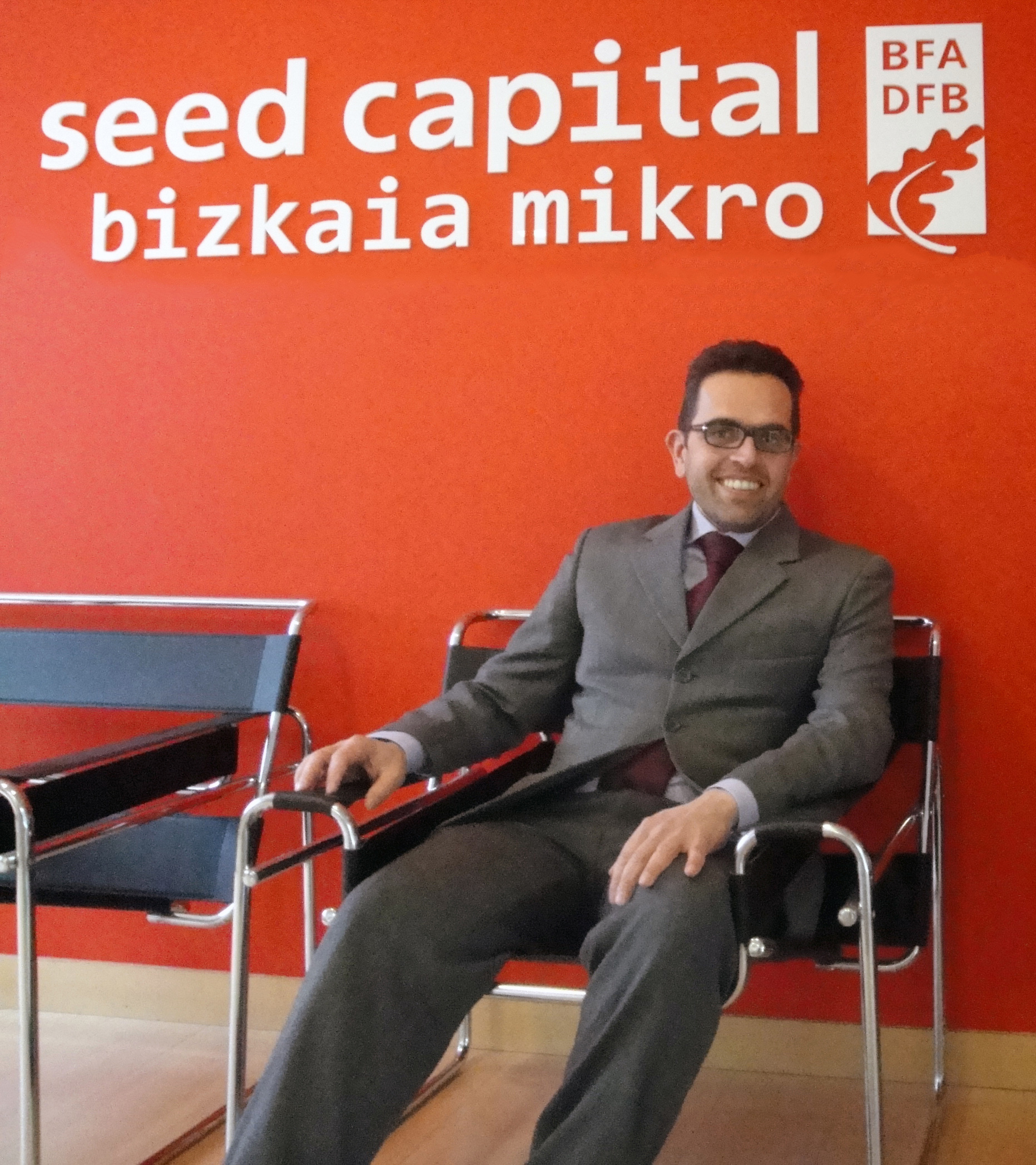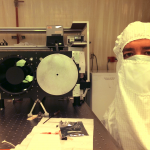“The European Community considers that microcredit is one of the instruments to create employment, to create stable and quality employment”
The EU program for Employment and Social Innovation (EASI) has the Fi Compass plan, for advice and technical assistance. Its objective is to strengthen the experience and training of the managing authorities and other actors, such as the microcredit concessionaires that make use of these funds.
Seed Capital Bizkaia Mikro, as a provider entity of microcredits, has been selected as beneficiary to receive technical assistance within the framework of this program and the person responsible for providing it has been Ivan Sannino, Chairman of the MicroFinanza Rating Committee.
In order to know the degree of development of Seed Mikro and identify the main weaknesses and possible threats, as well as the strengths of the company, there have been evaluated procedures, internal operating policies and different microfinance practices.
You surely know the results of many business project reviews. What are the main purposes of MicroFinanza Rating’s rating and pre-rating services?
It is a company that was born 15 years ago, in 2000. The main objective was that there was a need at an institutional level to professionalize the microfinance sector. It was in the second phase of development, that of institutional strengthening. Our goal was to develop best practices, spread the principle of transparency. In our rating and external evaluation work, we need all kinds of information, to have access to confidential data, because it is the only way to do it well. Promoting transparency and professionalizing the sector have been our original objectives. Today, after 15 years of existence, we also seek to remind the microfinance sector, composed mainly of regulated financial entities such as banks, that social performance is very important. It is fine that you have professionalized, strengthened and achieved positive results without losing money and funds, but it is also important that you keep in mind your social impact. The statutes of these entities include the social mission of microfinance. We are a company that tries to take care of the balance between these two great objectives of microfinance: economic-financial sustainability and social impact. That is why they were born: to give opportunity to those excluded from the banking system.
In addition to these services, you provide several more, including certification and auditing. Which advantages do these services offer to the client?
Our direct clients are microfinance institutions, in this case, Seed Capital Mikro. If we have microfinance entities strengthened with the two clear objectives, the economic and the social, the impact reaches the end customers, the promoters, (as it is said here), the micro-enterprises and the social business projects. For example, we, in addition to offering economic and social rating, are also one of the few internationally accredited certifiers for companies, banks or financial entities to obtain the corresponding certification. To do this, they have to meet various international standards and achieve the seven principles of financial consumer protection, which are very strict.
In the same way, which are the benefits of the specific services that you offer to investors?
Investors, to understand the terminology well, are all those who offer venture capital and loans to microfinance entities so that they, in turn, make their microloans to clients, individuals and micro-enterprises. Investors have had to support a sector, microfinance, which was very young, without a database, without statistics, with a lot of risk and, in this context, our rating, evaluations and certifications services have benefited them because they make the information is less asymmetric, is clearer. They have been able to verify that there are banks, or microfinance financial institutions in general that work with good social impact and others that do not, differentiate them and, consequently, support the good ones and leave the bad ones.
The founding goal of MicroFinanza Rating is “to increase transparency, facilitate investments and promote best practices around the world”. How important is compliance with transparency parameters in the financial world?
Today, transparency is an increasingly important value, not only in the field of microfinance but in all areas of life. Greater transparency means that we are showing others what we really are without masking anything. This allows better decision making, as well as a greater trust between people, between all the actors involved. The promoter who comes to Seed Capital needs a relationship of 100% mutual trust. When Seed Capital Mikro has to grant a microloan, it needs to make an evaluation of the client’s capacity to pay, because it is not beneficial in all cases, in some cases it is not, it generates an over-indebtedness. In that case, it must be avoided. Transparency is a ‘sine qua non’ condition for creating a relationship of mutual trust.
How do you think the economic crisis has influenced all this?
This specific project for which I am here collaborating with Seed Capital Mikro comes precisely from a program of the European Community, from the European Investment Bank, which already had a “JASMINE” pilot project three or four years; also participated in that first phase because the European Community considers that microcredit is one of the instruments to create employment, to create stable and quality employment. Large European companies have identified cheaper labour in other regions of the world; for that reason, the microenterprise, the small company is an alternative to replace these jobs that are being lost due to international dynamics, which is difficult to change.
Since 2006, MicroFinanza Rating has a department specialized in social rating. Based on the experience acquired with the activity of this department, how do you assess that a public venture capital entity, such as Seed Capital Bizkaia, also acts in the field of social economy?
I believe that it is highly valuable that a public entity such as Seed Capital Bizkaia, which has many years of experience in venture capital investments, has assumed social objectives such as the promotion of the territory and employment and the protection of consumers and of society in general. By acting in the field of social economy, in addition, it is exposed to a 360-degree evaluation for which a very high level of transparency is necessary, because the evaluation and diagnosis do not go well if there is not a total willingness to offer data. It is not ‘social rating’ but, in the future, surely, it could be interesting to do so.
How do you assess the alternative of venture capital in the current economic situation for the financing of ‘start-ups’?
It is very interesting, because the venture capital entity becomes a shareholder and, in some way, shares the good and the bad with the financed company. It is interesting and it works, especially when a company is already larger and needs a long-term injection of capital.
And that a public institution stands for venture capital?
If a public institution does it, it is because there are shortages/needs in the market; otherwise, it would not be promoted. In addition, it sets an example and encourages the private sector to do so later as well. In the end, there are more opportunities for self-employment.
What do you think is the image of the big rating agencies today? To what extent has your reputation been damaged by not noticing the arrival of the financial crisis or cases as notorious as the bankruptcy of Lehman Brothers?
The most famous rating agencies are the Big Three in the US, which have been around for a hundred years. Our agency and two more that also exist were born with a different approach. The powerful rating agencies, in general, do not have a very positive image; they are considered very cold entities; no one has ever seen their faces. Are they transparent? They do not look like it.
In rating agencies specialized in microfinance like us, transparency is a starting objective. We are transparent in our own house and we also promote values that are not only return on investment, pure solvency, but also the achievement of social objectives. We were born into a world of responsible finance, not traditional for-profit finance and nothing else.
What kind of evaluation has been carried out on Seed Capital Mikro? Which areas for improvement have you been able to identify?
I have received good feelings. Something that I value as very important is that its professionals have understood from the beginning that I need to talk to them. The main asset of microfinance institutions is the human team. People do everything. I have seen a great atmosphere, a lot of collaboration and the capacity to work as a team; which is very positive for the future.
It is a newly created company and, therefore, with still low figures, although the new tools for microcredit have almost been completed. They are on the right track. As I ask them questions, I try to challenge them and think about what the next steps might be to keep growing. They already have the goals. Now we have to keep putting everything together and be ready to have many clients and benefit them, to create jobs and generate social impact.
Once the areas for improvement have been identified, the next visit will come from the Frankfurt School (FS), which will provide technical assistance and training services for the institutional strengthening of Seed Capital Mikro in order to offer better services to its clients.




